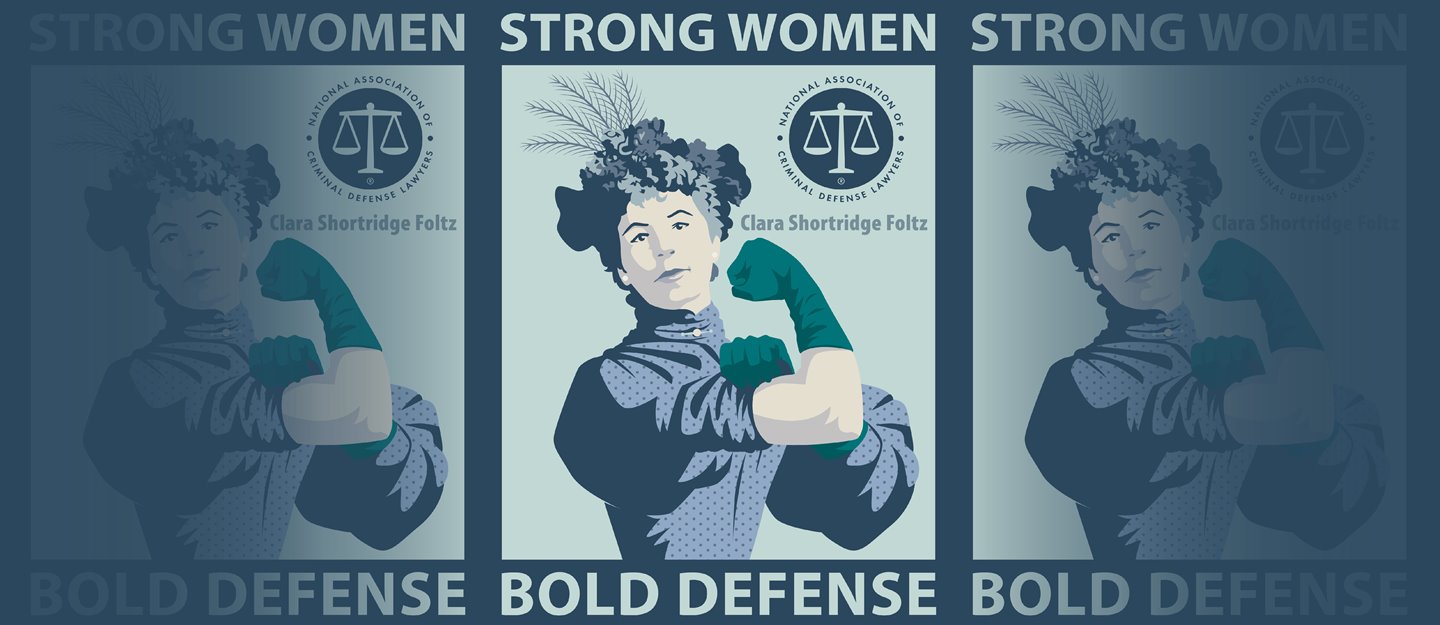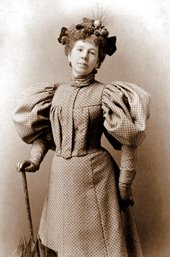Explore keywords to find information
Featured Products
-

2025 Year-End Ethics Grab
Earn your ethics credits for 2025 by learning from some of the best criminal defense attorneys in the country! This comprehensive year-end ethics program brings together three of NACDL’s most practical and timely presentations—helping defense lawyers meet their ethics credit requirements while sharpening their understanding of the professional challenges facing today’s practice. This special compilation includes the highest-rated legal ethics presentations delivered at NACDL conferences in 2025!
-

Using AI for Trial Preparation: Managing Overwhelming Caseloads
This 1-hour program shows defense lawyers how to use AI to tame heavy caseloads while staying ethical. Learn to auto-summarize discovery into timelines, relationship maps, and contradiction charts; draft and refine cross-exams; analyze juror questionnaires; and test case theories. Set up workflows and agents to monitor law, media, and social posts. Build simple custom trial tools. Leverage sentencing data for mitigation. Includes confidentiality, verification, and disclosure best practices to boost accuracy and save hours weekly.
-

Pozner's Red Book on Cross: Lessons in Advanced Cross-Examination
This compact handbook brings together over 20 of Larry Pozner’s most powerful cross-examination articles, covering core principles and advanced strategies for witness control, impeachment, chaptering, and framing reasonable doubt. Packed with scripting examples, real-world scenarios, and tactical insight, it shows how to press or pivot with purpose, drop weak points, and keep cross disciplined. Whether dismantling an officer’s account, challenging an eyewitness, or exposing investigative gaps, Pozner’s field manual delivers courtroom-ready tools to win.
-

Exposing Lies and False Testimony in Criminal Trials
When a case hinges on credibility, the lawyer who can expose a lie controls the outcome. This program delivers a courtroom-ready system to detect deception, dismantle false testimony, and turn credibility attacks into acquittals or favorable pleas. Learn research-backed methods to spot dishonesty in interviews, build an impeachment toolkit under the rules of evidence, and craft narratives that reveal bias, motive, and contradictions—arming you to challenge police, experts, informants, and eyewitnesses with precision.
-

Objections That Stick! How to Exclude, Preserve, and Persuade
If you’re not objecting, you might be conceding—learn how to stop giving ground.
This program delivers practical strategies for making effective objections in criminal trials, especially drug cases. Learn how to challenge hearsay, 404(b) evidence, improper opinions, and prejudicial testimony. You’ll get objection language, methods for preserving error, and tactics for handling misconduct in closing arguments. With real-world examples and trial-tested tools, this program helps defense attorneys sharpen courtroom advocacy and protect the record for appeal.
-

Combating the "Rape Myth" Expert: Excluding & Diffusing Expert Testimony
When the prosecution uses a “rape myth” expert to sway the jury, do you know how to stop them—and turn their science against them?
This program, based on a real trial, gives defense attorneys a practical roadmap to challenge and exclude biased psychological testimony. You’ll get sample voir dire, motion language, Daubert strategies, and tips for exposing flawed methodology and narrowing testimony. Whether you're aiming to exclude the expert or limit their impact, this session equips you with the tools to protect your client and assert control in the courtroom.
-

Pattern Cross-Examination for Digital Forensic Experts
This guide provides ready-to-use cross-examination questions, categorized by artifact type and case theme—from cell phone towers to deleted texts to smart devices and cloud forensics. Whether you’re handling a case involving child exploitation, stalking, or online fraud, this book delivers practical patterns designed to highlight sloppy forensics, bias, tool limitations, and assumptions of intent or identity. Defense attorneys don’t need a computer science degree—they need strategy, control, and the right questions to challenge the illusion of digital certainty in court.
-

Using Chat GPT in Criminal Cases - Writing Better Prompts
Want a motion written in plain language but grounded in Tennessee case law? Need a summary of Fourth Amendment jurisprudence with primary and secondary citations? This is where you learn how to get that—on demand, and with far less editing. This training is designed specifically for attorneys—busy professionals who need fast, accurate, and case-relevant AI support. Whether you’re drafting motions, brainstorming legal strategy, summarizing complex case law, or preparing cross-examinations, the quality of your AI output comes down to one thing: how you ask for it.
-

Alcohol, Blackouts and Consent in Sex Cases
This comprehensive training program provides defense attorneys with a rigorous, science-backed approach to dismantling prosecutorial narratives, exposing unreliable testimony, and ensuring that juries are properly educated on the complexities of memory, intoxication, and consent. You'll explores critical mistakes and misconceptions encountered in these cases, including errors in memory reconstruction after an event, incorrect inferences, cognitive schemas, suggestibility, contamination and misinformation, mistakes of fact and more.
-

Overcoming the Presumption of Guilt and Defining Reasonable Doubt
Reasonable Doubt, what is it?
In order to win criminal cases, the defense practitioner must object to a reasonable doubt standard that lowers the burden of guilt. This program will discuss proven methods to argue and define reasonable doubt persuasively to a jury. You’ll learn how define reasonable doubt using metaphors and hypothetical scenarios that force juries to dispute the evidence, conflicts in the evidence, or even lack of evidence in your case.
-

The DIY of DNA: Exoneration Through DNA Evidence
This presentation might be the first time you’re truly able to truly grasp the fundamentals of DNA evidence. This critical presentation blends real-world storytelling with clear, practical instruction—making DNA evidence finally feel accessible, even to non-scientists—while inspiring attorneys to dig deeper, ask smarter questions, and approach forensic science with newfound confidence. You’ll learn how to identify and interpret electropherograms, understand autosomal vs. Y-STR testing, and recognize the limits of DNA evidence—particularly when it involves partial or mixed samples.


 Alice Fontier is the Managing Director of NDS Harlem, a holistic public defense office providing criminal, civil, and family defense. She has been a practicing criminal defense attorney for over twenty years after graduating from NYU School of Law. Prior to joining NDS Harlem, Alice was the Managing Director of the Criminal Defense Practice at the Bronx Defenders. She has previously worked as a Supervising Attorney at NDS Harlem, the Federal Defenders of San Diego, and as a private attorney in both the federal and state courts of New York. She has handled several high-profile national security cases and other media cases. Alice is the Past President of the New York State Association of Criminal Defense Lawyers, and Parliamentarian of the National Association of Criminal Defense Lawyers. She is an Adjunct Professor at NYU School of Law where she teaches the Police Misconduct Externship, and a Lecturer in Law at Columbia University Law School where she teaches Trial Skills and the NDS Community Defense Externship. In addition, Alice regularly teaches CLE’s for NYSCADL, NACDL, at the Defenders Academy Trial Skills Training, and has taught trial skills at the Kentucky State Trials Skills Academy in Faubush.
Alice Fontier is the Managing Director of NDS Harlem, a holistic public defense office providing criminal, civil, and family defense. She has been a practicing criminal defense attorney for over twenty years after graduating from NYU School of Law. Prior to joining NDS Harlem, Alice was the Managing Director of the Criminal Defense Practice at the Bronx Defenders. She has previously worked as a Supervising Attorney at NDS Harlem, the Federal Defenders of San Diego, and as a private attorney in both the federal and state courts of New York. She has handled several high-profile national security cases and other media cases. Alice is the Past President of the New York State Association of Criminal Defense Lawyers, and Parliamentarian of the National Association of Criminal Defense Lawyers. She is an Adjunct Professor at NYU School of Law where she teaches the Police Misconduct Externship, and a Lecturer in Law at Columbia University Law School where she teaches Trial Skills and the NDS Community Defense Externship. In addition, Alice regularly teaches CLE’s for NYSCADL, NACDL, at the Defenders Academy Trial Skills Training, and has taught trial skills at the Kentucky State Trials Skills Academy in Faubush. Melanie Foote is the Education & Strategic Planning Branch Manager for the Kentucky Department of Public Advocacy, where she has the pleasure of planning and offering training for all staff members within the Kentucky statewide public defender system. Melanie also trains nationally and for a variety of organizations, including Gideon’s Promise, the National Criminal Defense College, the National Association of Public Defense, National Association of Criminal Defense Lawyers, and several other local, state, and national organizations. Melanie teaches on a wide range of topics related to litigation skills, management and leadership, and training. She is also serves on the Board of Directors for the National Association of Criminal Defense Lawyers. Melanie joined the KY DPA in 2007 in the Post Conviction Branch. She joined the KY DPA Innocence Project in 2009, where she assisted individuals in proving their factual innocence. In 2011 she joined the Trial Division of the KY DPA, where she represented clients in cases ranging from misdemeanors to capital eligible offenses in the Elizabethtown and LaGrange trial offices. She joined the Education Branch in 2014.
Melanie Foote is the Education & Strategic Planning Branch Manager for the Kentucky Department of Public Advocacy, where she has the pleasure of planning and offering training for all staff members within the Kentucky statewide public defender system. Melanie also trains nationally and for a variety of organizations, including Gideon’s Promise, the National Criminal Defense College, the National Association of Public Defense, National Association of Criminal Defense Lawyers, and several other local, state, and national organizations. Melanie teaches on a wide range of topics related to litigation skills, management and leadership, and training. She is also serves on the Board of Directors for the National Association of Criminal Defense Lawyers. Melanie joined the KY DPA in 2007 in the Post Conviction Branch. She joined the KY DPA Innocence Project in 2009, where she assisted individuals in proving their factual innocence. In 2011 she joined the Trial Division of the KY DPA, where she represented clients in cases ranging from misdemeanors to capital eligible offenses in the Elizabethtown and LaGrange trial offices. She joined the Education Branch in 2014. C. Melissa Owen is a founding partner of Tin Fulton Walker & Owen, a mid-sized North Carolina law firm with offices in Charlotte, Chapel Hill, and Raleigh. Missy Owen’s personal practice areas include state and federal criminal defense, with a focus on white collar matters, financial crime, sex offense prosecutions, and Title IX representation. Missy has served NACDL in numerous capacities, including as a program co-chair in the CLE Institute and a member of the Women in Criminal Defense Committee, the White Collar Committee, the Title IX Committee, and the Bylaws Committee. She is also active on numerous bar associations and community groups, including service on the Board of Governors of North Carolina Attorneys for Justice and the Ethics Committee at the North Carolina State Bar, which publishes Advisory Ethics Opinions for North Carolina attorneys. Missy Owen earned her undergraduate degree from Miami University in Ohio and her law degree at Duquesne University School of Law in Pittsburgh.
C. Melissa Owen is a founding partner of Tin Fulton Walker & Owen, a mid-sized North Carolina law firm with offices in Charlotte, Chapel Hill, and Raleigh. Missy Owen’s personal practice areas include state and federal criminal defense, with a focus on white collar matters, financial crime, sex offense prosecutions, and Title IX representation. Missy has served NACDL in numerous capacities, including as a program co-chair in the CLE Institute and a member of the Women in Criminal Defense Committee, the White Collar Committee, the Title IX Committee, and the Bylaws Committee. She is also active on numerous bar associations and community groups, including service on the Board of Governors of North Carolina Attorneys for Justice and the Ethics Committee at the North Carolina State Bar, which publishes Advisory Ethics Opinions for North Carolina attorneys. Missy Owen earned her undergraduate degree from Miami University in Ohio and her law degree at Duquesne University School of Law in Pittsburgh. As the Chief Public Defender, Adeola Ogunkeyede directs all activities of the Public Defender’s Office. She inaugurated the role, building out the office’s holistic practice from the ground up. Ms. Ogunkeyede previously served as the inaugural director for the Civil Rights & Racial Justice Program (CRRJ) at the Legal Aid Justice Center in Virginia.
As the Chief Public Defender, Adeola Ogunkeyede directs all activities of the Public Defender’s Office. She inaugurated the role, building out the office’s holistic practice from the ground up. Ms. Ogunkeyede previously served as the inaugural director for the Civil Rights & Racial Justice Program (CRRJ) at the Legal Aid Justice Center in Virginia. Heather Rogers has been a public defender for over 18 years in the state and federal courts. Heather has handled cases at every stage of litigation, from arraignment through trial and appeal. She has represented clients accused of offenses from delinquency to homicide, defended detainees incarcerated at Guantánamo Naval Base in Guantanamo, Cuba, and argued cases in the Ninth Circuit Court of Appeals. Heather is honored to serve as the first Public Defender of Santa Cruz County, her birthplace and home. Before her appointment, Heather served as a public defender at Biggam, Christensen & Minsloff, the defense firm that previously provided public defense services for Santa Cruz County. Heather is a faculty member of the National Criminal Defense College, lecturer in Legal Studies at the University of California, Santa Cruz, and frequent trainer at regional and national trial skills programs. Heather has also taught at California Western School of Law and Monterey College of Law. Heather clerked for the Honorable M. Margaret McKeown on the Ninth Circuit Court of Appeals before starting her career in public defense at Federal Defenders of San Diego, Inc. Heather also served as a public defender in Monterey County and at the Federal Public Defender for the Northern District of California before coming home to Santa Cruz. Heather has an A.B. in English Language & Literature from the University of Chicago and a J.D. from Stanford Law School. She lives in the Aptos mountains with her husband, children, and pets. In her free time, Heather enjoys traveling, hiking, and snowboarding.
Heather Rogers has been a public defender for over 18 years in the state and federal courts. Heather has handled cases at every stage of litigation, from arraignment through trial and appeal. She has represented clients accused of offenses from delinquency to homicide, defended detainees incarcerated at Guantánamo Naval Base in Guantanamo, Cuba, and argued cases in the Ninth Circuit Court of Appeals. Heather is honored to serve as the first Public Defender of Santa Cruz County, her birthplace and home. Before her appointment, Heather served as a public defender at Biggam, Christensen & Minsloff, the defense firm that previously provided public defense services for Santa Cruz County. Heather is a faculty member of the National Criminal Defense College, lecturer in Legal Studies at the University of California, Santa Cruz, and frequent trainer at regional and national trial skills programs. Heather has also taught at California Western School of Law and Monterey College of Law. Heather clerked for the Honorable M. Margaret McKeown on the Ninth Circuit Court of Appeals before starting her career in public defense at Federal Defenders of San Diego, Inc. Heather also served as a public defender in Monterey County and at the Federal Public Defender for the Northern District of California before coming home to Santa Cruz. Heather has an A.B. in English Language & Literature from the University of Chicago and a J.D. from Stanford Law School. She lives in the Aptos mountains with her husband, children, and pets. In her free time, Heather enjoys traveling, hiking, and snowboarding.

